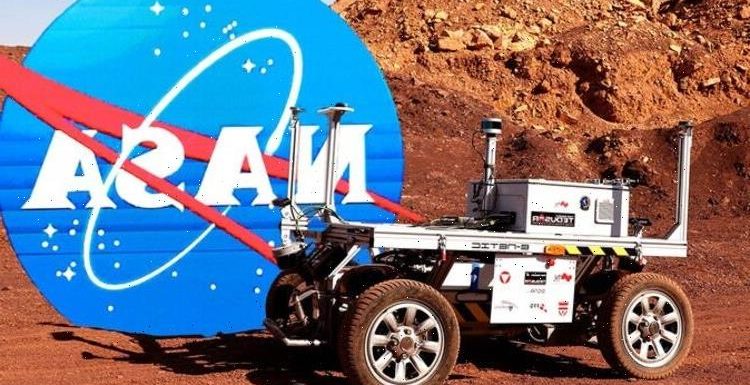
ExoMars: Engineer reveals mission could expose life on Mars
We use your sign-up to provide content in ways you’ve consented to and to improve our understanding of you. This may include adverts from us and 3rd parties based on our understanding. You can unsubscribe at any time. More info
Earlier this month, the European Space Agency (ESA) announced that it would no longer collaborate with Russian Space Agency Roscosmos over the ExoMars project, calling it an “impossibility”, ExoMars is the UK-led space programme developed by the two agencies to search for signs of life on the Red Planet.
The multi-mission programme is also developed with the goal of investigating variations in the Martian geochemical and hydrological environment, studying trace gases and their sources, and demonstrating technologies that could one day be used in a mission to return samples from Mars back to Earth.
The ESA is now considering how to move forward with the delayed implementation of the next mission in the ExoMars programme.
In light of this, experts have argued that NASA is in a prime position to take over Roscosmos’ role in this project.
Mark R. Whittington, the author of “Why is It So Hard to Go Back to the Moon?” said: “NASA has an excellent opportunity to step up, offer its services to complete the ExoMars mission, and rectify the mistake that Obama made.”


NASA was originally going to be the primary partner on this project when it first was first launched.
However, the US space agency was forced to end its partnership on the programme due to budget cuts made by then-President Barack Obama in order to pay for cost overruns on the James Webb Telescope.
According to Mr Whittington, NASA would be able to give the ESA access to several launch vehicles through commercial partners like SpaceX.
He believes that NASA’s decades-long experience of successful Mars missions would make it a valuable partner, and could be able to rejoin the project by 2024 or even 2026.

He added: “Both ESA and NASA would benefit from such an arrangement.
“The ESA will have acquired a more capable partner that is more likely to get the Rosalind Franklin rover to the Martian surface intact.
“NASA will buttress its credibility as a good space partner, something of importance for attracting more European countries to the Artemis Accords.”
He also argued that Russia and Roscosmos would end up being the “big losers” as a result of the war on Ukraine.
Earlier this month, UK satellite company OneWeb announced that it would re-start its satellite launches after striking a deal with Elon Musk’s SpaceX.
DON’T MISS:
Solar storm warning: NASA predicts direct Earth hit from ‘fast’ impact [REVEAL]
Australia battles ‘major outbreak’ as two die from virus [SPOTLIGHT]
Flurona: Patients with Covid and flu at higher risk of death [REPORT]


This happened after Roscosmos held up 36 OneWeb satellites that were supposed to launch on March 4 on a Soyuz rocket from the Baikonur Cosmodrome in Kazakhstan.
The UK’s OneWeb network, while currently carrying out different functions to the EU’s Galileo network, it has been tipped to one day rival the EU constellation.
OneWeb is a constellation of low-Earth orbit (LEO) satellites that beam signals in 3G, 5G, LTE and Wi-Fi for high-speed Internet access to all corners of the globe.
Source: Read Full Article